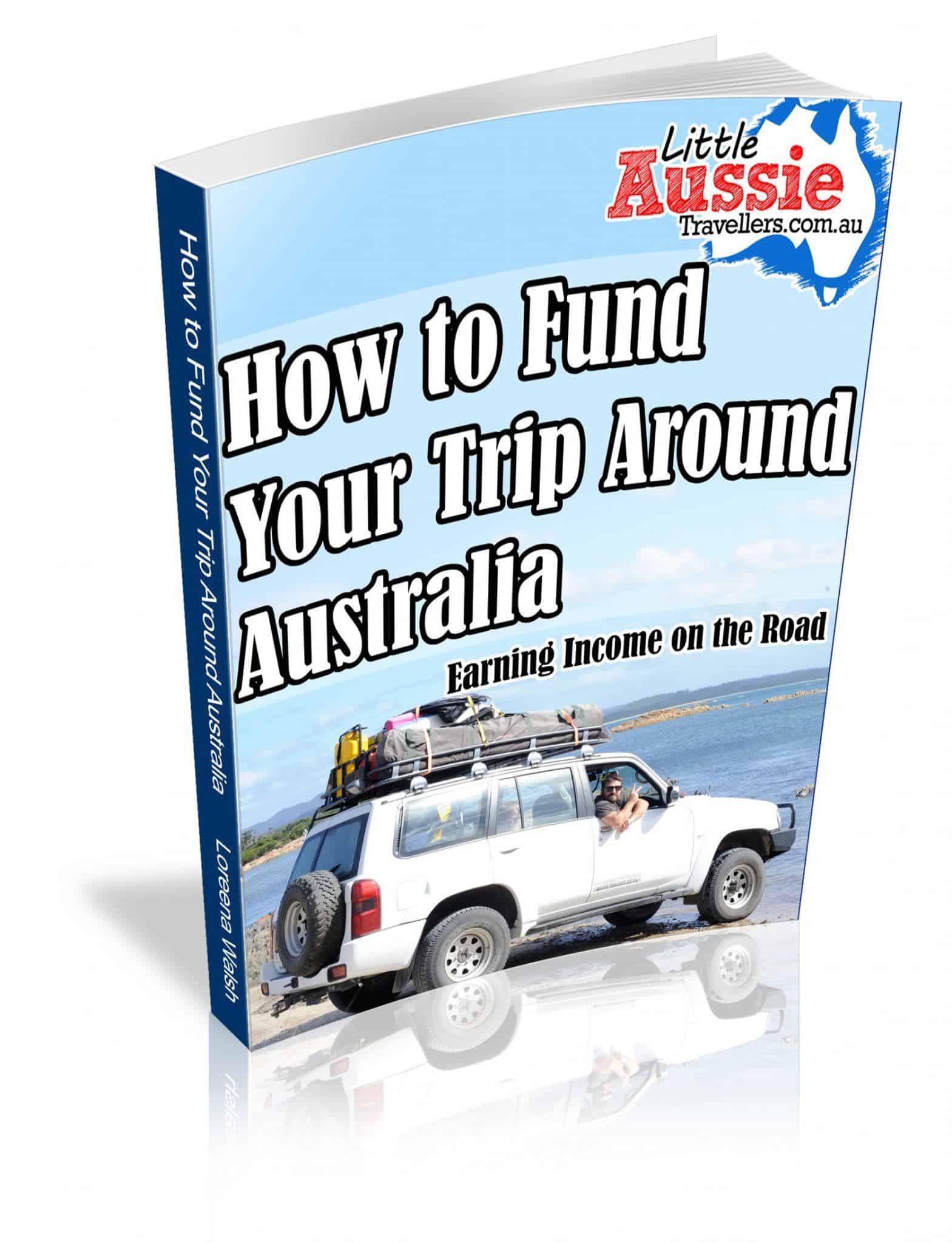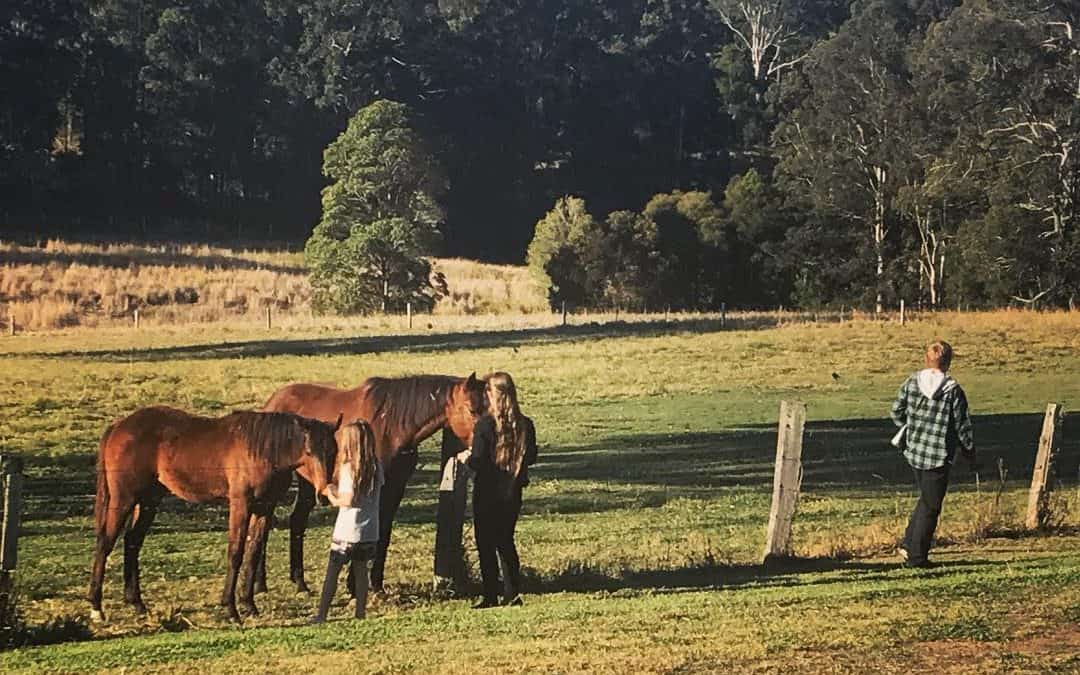
by Loreena Walsh | Featured Posts, Trip Planning, Uncategorized
It’s been a ridiculously long time since I’ve posted anything here. Truthfully, I’ve thought about closing this travel blog down many times, but the wanderer in me hates the thought of it disappearing altogether.
Every time I go to delete it from the internet, I remember the reason we started this travel site in the first place – to inspire ourselves and other families to get out and travel Australia with kids and pets in tow. Once we’d set our sights on the idea of full-time travel, we knew that if we could make it happen, then anyone could.
With hard work and dedication and a lot of stubborn determination, we achieved our goal of selling everything to travel Australia, and we had the most wonderful of family experiences along the way. Living on the road changed us from the depths of who we believed ourselves to be, right through to who we’ve since become. It was difficult to admit that full-time travel for us wasn’t going to be able to continue long term.
When life stands in your way, as we’ve learned over and over again, it’s best to pivot. We’d always had a dream of owning small acres, and we’d looked at so many options for re-settling including shared farming and even tiny homes. We realised that looking back wasn’t going to serve us in any positive way, and it was time to look forward, to focus on our family and our next big goal.
Why We Stopped Travelling Australia.
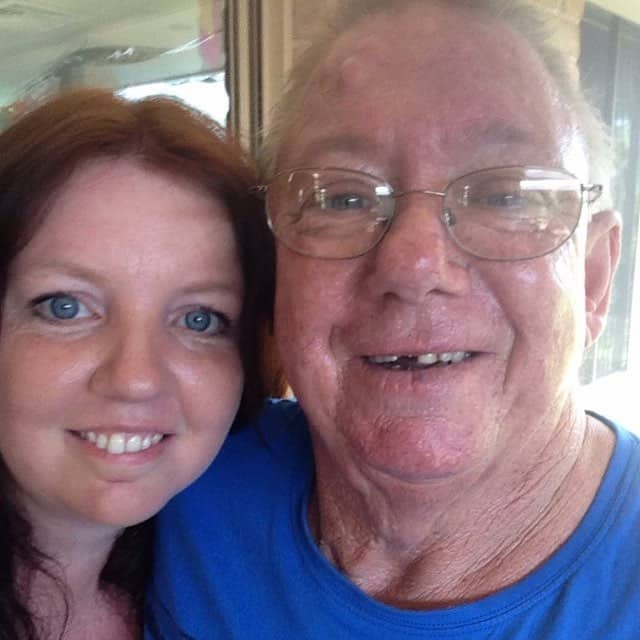 After we’d been on the road for around six months, Matt’s dad called, as he needed some respite. Matt’s grandmother developed severe dementia, it progressed quite rapidly, and so, instead of continuing on our way, we needed to stay put and help care for her.
After we’d been on the road for around six months, Matt’s dad called, as he needed some respite. Matt’s grandmother developed severe dementia, it progressed quite rapidly, and so, instead of continuing on our way, we needed to stay put and help care for her.
What was supposed to be a 2 week stop turned into almost 2 years. We sold our Jayco Swan and bought an old caravan to renovate – a project we’re still yet to finish.
It was during this time that the kids reconnected with their homeschool group, and as they catapulted toward teen years, it became very evident that developing friendships, bonds and connections was more important for them than travelling.
The decision was made to apply for a rental and re-settle. It took a long time for it to feel right, but the benefit of having left everything behind, and having shed my old self, was that I returned as a slightly braver person, keen to make connections.
In hindsight, after losing my dad suddenly about a year and a half ago, I’m so grateful we were home, and closer to him.
Goals To Have For A Life After Travel
Just like everyone’s travel style is different, everyone’s life goals are different. Before we left to travel Australia, we knew what our goal would be when we’d decided to stop – to buy a home on some acreage.
This goal seemed huge, even more out of our reach than travel ever felt, and yet we knew that somehow there was a rural property just waiting to become ours.
But stopping travel wouldn’t be easy, and life after travel would turn out to be even heavier than the emptiness that staying in one place inflicted on us.
It turned out that the next couple of years would be filled with Dementia, terminal illness, losing loved ones, caring for loved ones, losing friends and having to face our own mortality and that of everyone around us. It was a rough ride.
Losing loved ones was one of our motivations to travel originally. We knew that life was too short and we wanted to explore and spend quality time with our kids. Ironically it was losing my dad, Matt’s nan and one of my closest friends that drove our decision to settle down. All of a sudden life felt fragile, our children were craving connection and peers and they were growing out of early childhood and towards their teen years.. fast.
So we did what we could. Matt found a great paying job – this turned out to be a dance with the devil – it almost destroyed him, however the increased finances helped buy our dream home so it’s worth keeping that in perspective. We found a cheap but nice rental, and we went about re-establishing our lives, reconnecting with old friends and saving towards our dream home. Just over a year ago we achieved our dream, and now we’re creating new memories with friends, family and the kid’s friends on 7 acres that we truly adore.
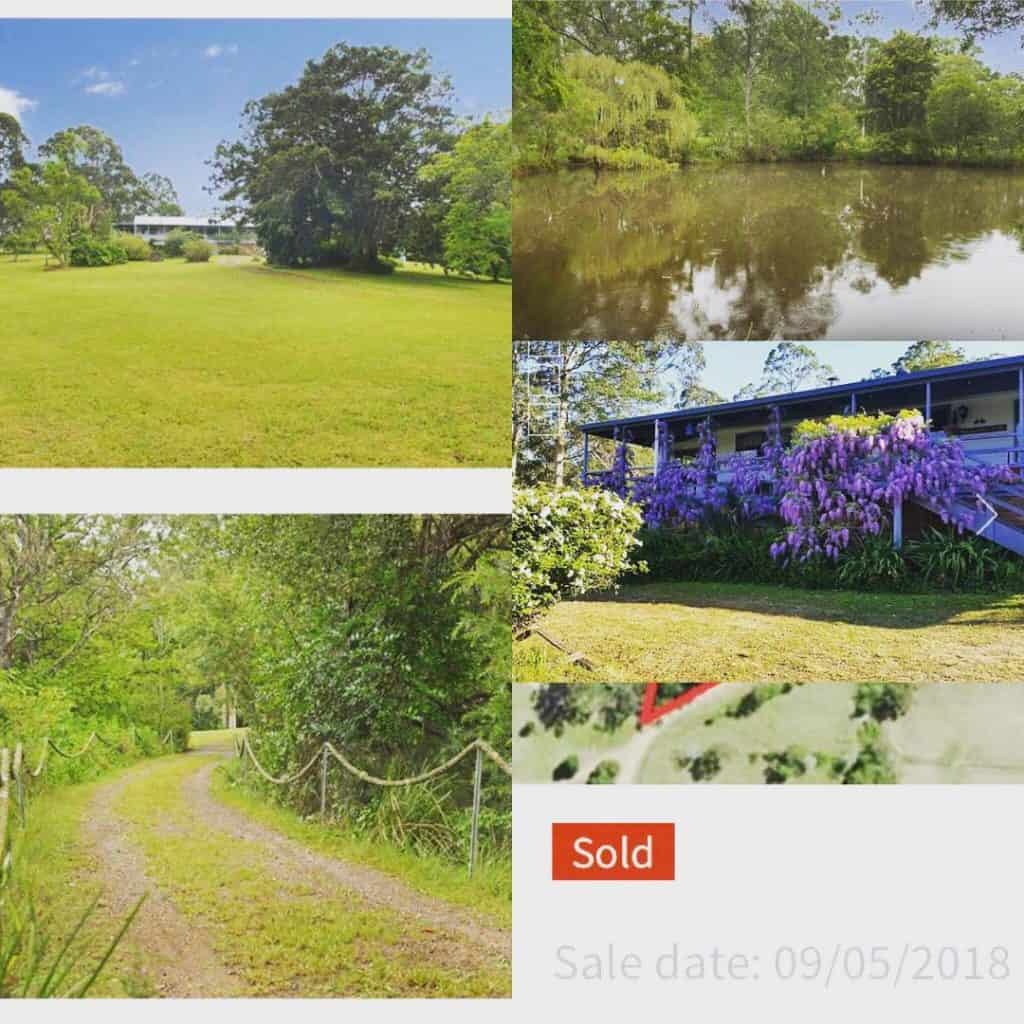
Things A Travel Lifestyle Taught Me
All I can truly say is that I’ve learned that life comes in seasons. Is it worth throwing everything, money, time and effort towards travelling with kids? The big resounding answer is YES YES YES!
I wouldn’t change having travelled for the world! But I also love that we’ve now settled back down.
I’m going to keep this site online and might even add things to it. I might bring on some guest posters, because as the grief of losing so many loved ones settles, and the memories of travelling get more dim, the passion to inspire others to do the same is still as strong as ever.
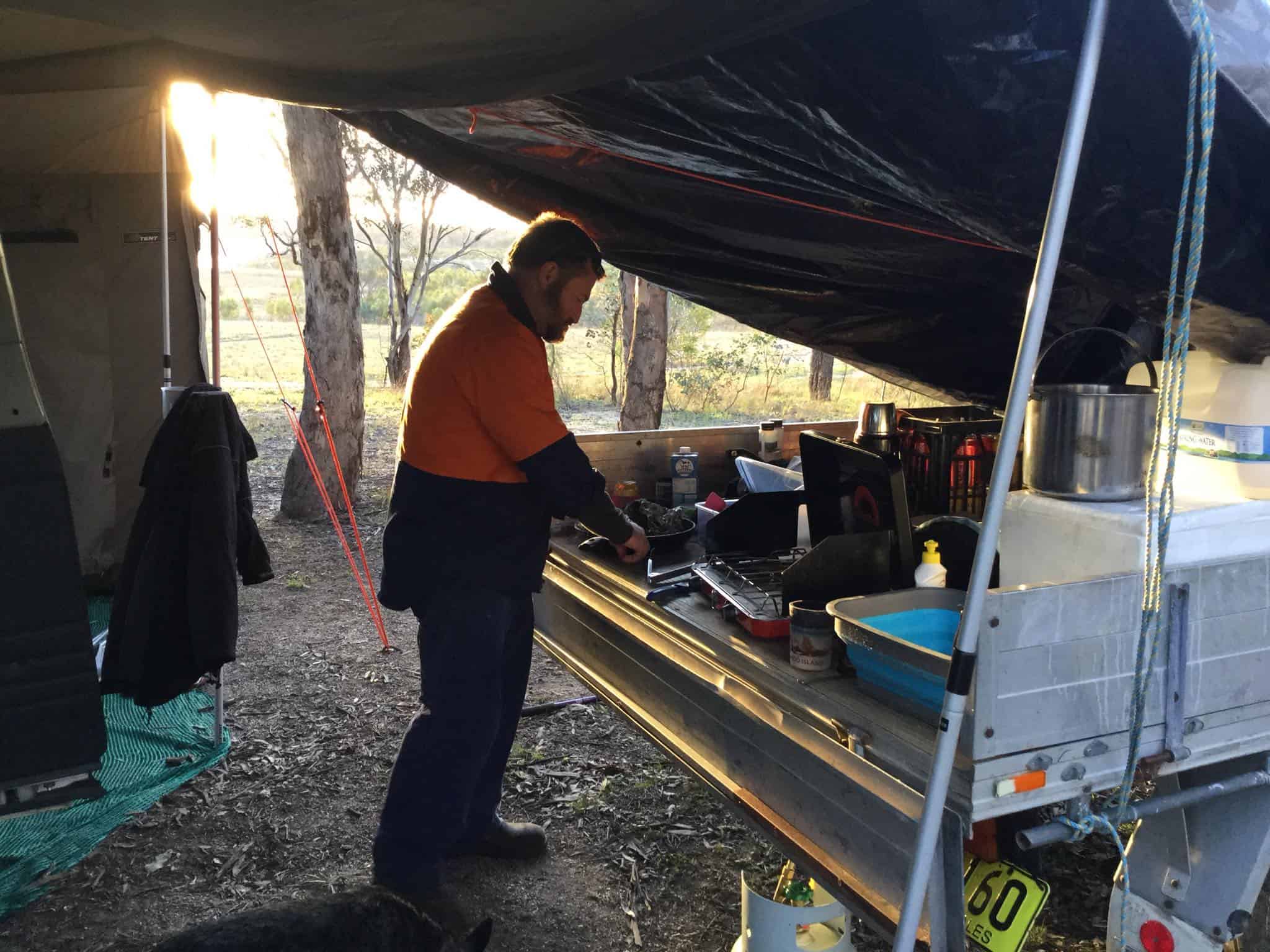
by Loreena Walsh | Featured Posts, Finances & Obligations, Slider Features, Trip Planning
Financial questions like ‘How much does it cost to travel Australia?” are the most common topic we’re asked about from our community and readers, so we thought it might be useful to give some idea of what it could possibly cost you to do a lap around Oz.
Sadly, this question just like many others related to travelling is another “how long is a piece of string” question; one that is highly dependent on your own personal travel choices and desires. For that reason, I can’t tell you exactly how much it costs to travel Australia, but I can give some insight into the typical costs and expenses you’re likely to face on the road, and how some of your choices may help to stretch your budget or swallow it up with great speed.
The average cost we see thrown around tends to be $100 per day, lots of families spend more than this and lots spend less, it depends on your setup and how luxurious or frugal you’d like your travel to be.
If you haven’t started to plan your lap of Australia, then go here first for some insight.
The Biggest Expenses You’ll Face, Travelling Australia.
Your biggest expense on the road is usually one of three things:
For Us The Biggest Expense When Travelling Australia Is Fuel.
That’s because our chosen travel vehicle for our trip was a Nissan Patrol. It’s a great four wheel drive and will get us almost anywhere and it has a very generous tow limit (one of the best on the market), the pay-off for this, is that it is a heavy vehicle, and it likes to drink A LOT of diesel. So, for us, I think at the moment we are getting about 700kms to our 110 litre dual tanks. This can vary on how much of the time we are towing, and the terrain we are towing in. Without towing, we get over 800kms to our dual tanks, and lately, it’s been costing around $140-$160 to fill up. Of course, if we’re in smaller towns or remote areas, diesel is going to cost us a lot more and the cost of filling both tanks is likely to head to $200+.
So, this means for us, if we want or need to move long distances quickly, we’re going to pay the price with a large fuel bill. We spread this large expense out by travelling relatively slowly, and shorter distances at a time.
Free Camping Keeps Accommodation Costs Down When Doing A Lap Of Aus.
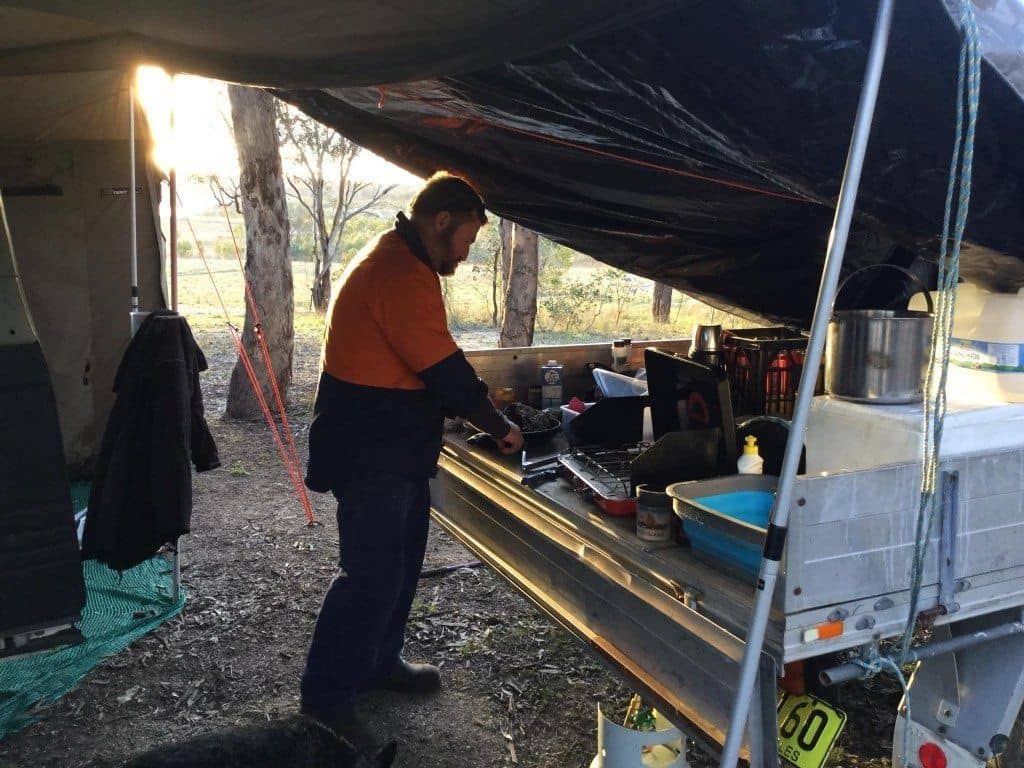
We almost always free camp or budget camp. If we aren’t free camping, we’re budget camping. By budget camping we’re aiming for $20 per night or less. If you don’t like free camping or are not set-up to be self sufficient, then the reality is you’re accommodation expenses are going to be much larger than ours, especially if you’re aiming to stay in caravan parks.
For a family of five to stay in a caravan park, we generally would be looking at paying from $35 (this would be a very cheap park) right through to $120+ per night. It’s really difficult to afford long term travel if required to pay an average of $100 per night for a family.
There is nothing wrong with caravan parks just know this option costs more: Caravan parks have their place, we were always staying in caravan parks before we chose to do some long term travel. Caravan parks are the perfect place for families to stay on holiday. Caravan parks are a wonderful way to take an enjoyable break from the rigours of free camping and enjoy wonderful facilities. Some families are able to budget to stay in caravan parks as part of their journey. For us, we just couldn’t afford it.
There is often tension between long term travellers and caravan park owners. I wish it wasn’t the case, but it occurs because there’s often a lot of pressure forced upon councils in certain areas to close free camping areas so that people stay within caravan parks only. What generally happens in this case is that families and travellers either bypass the area all together or stay only a day or two and move on instead of staying longer and spending more money in town.
There needs to be a balance, and you need to make the choice that is affordable for your family. Setting yourself up to be able to free camp before you leave, will make your travels cheaper in the long run.
Keeping Food Costs Low When Travelling Australia With Kids
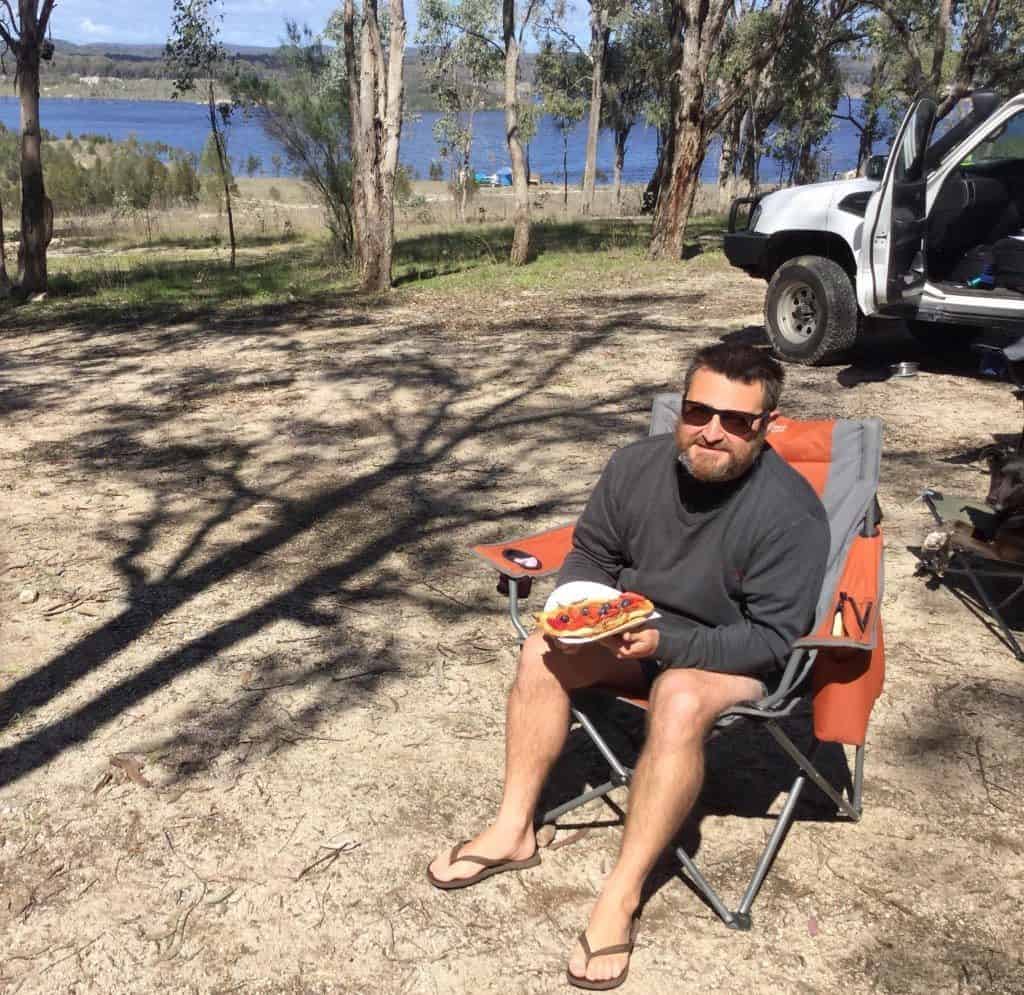
The trick to keeping food costs low when travelling Australia is planning! Planning your food and meals helps you to not only cut down on the expense of the food you buy; it also helps you to minimise any food wastage. There are several points to consider when it comes to food:
- Larger towns and centres will mean cheaper food bills, it’s a good idea to stock up on non-perishables when you’re in areas with access to cheaper food prices.
- Getting creative with staples will help keep your food bills down. Things like rice, pasta, coconut cream, tinned fish, tinned tomatoes and other tinned veggies, flour, sugar and salt will help you rustle up a great meal even when other ingredients aren’t readily available.
- Take advantage of regional produce. While not everywhere in Australia is a food producing region; many of the areas you visit will provide access to beautiful fresh produce directly from the farm gate. Tasmania has an abundance of boutique food providers and food growers and our food bill there was great – unless you’re in a remote area as I mentioned already, then we had to buy smart!
- Plan your meals and DON’T overcook! You’re not going to have the storage space you’re used to in a house, and you won’t have access to a giant fridge either; this means that storage space for leftover is limited! When you do have leftovers, be sure to eat them for the next meal or at the latest the next day, often caravan and camp fridges can struggle so it’s best to eat them quickly and do be sure to re-heat thoroughly.
- Don’t Eat OUT!! Eating from cafe’s or takeaway stores will eat into your travel budget! Pack your lunch, take healthy snacks and only drink water out of a drink bottle you carry with you. This alone will save you thousands of dollars that are better spent elsewhere!
Other Tricks For Saving Money When Travelling & Keeping Costs Down
Don’t go to every attraction you come across: If you saw a zoo or a wildlife centre in the last town, really think about whether you need to visit one at your current stop. Some attractions are well worth the extra expense, some however will be a bit repetitive. Usually you will find free or gold-coin donation entry at local museums and historical centres which will often be a whole lot more beneficial for learning and understanding the region.
Keep Gas Stocked Up in Larger City Centres: We got stuck paying over $40 for a gas bottle refill in a remote area because we just didn’t realise there would be such a big price difference. We could have filled it up for $25 only 50kms before! It was a mistake we didn’t make twice.
Visit Visitor Information Centres For Discounts: Not only do visitor information centres offer a wealth of local knowledge, you’ll also find visitor booklets on display and you’ll often be nicely surprised by the number of coupon vouchers on offer! Any saving is a saving that helps you travel further!
How Much Do You Spend Travelling Australia?
There are so many variables for the cost of travelling around the country that your experience may well differ from ours. Have you got any tips for our readers on how much it costs to travel or how to save money while on the road? We’d love to hear it, just leave a comment below.

by Loreena Walsh | Finances & Obligations, Income & Finances
One of the biggest considerations for families wanting to travel Australia long term is the ability to find and maintain work while on their road trip of a lifetime. Fruit picking and harvesting work is a common income stream for travellers, so it helps to have a yearly guide to where and when this work is available.
Working your way around Australia extends the amount of time you’re able to travel, and gives most families more of a chance to hit the road in the first place. It removes the need to have massive amounts of money saved, and creates a travel itinerary based around slow travel, where time and experience, immersion within communities and a lifestyle change, rather than a fast-paced holiday.
We get a lot of questions asking when to travel to which Australian regions to access jobs such as fruit picking, harvest work, and farm work that tends to be quite seasonal.
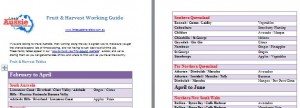 As part of our best-selling ebook “How to fund your trip around Australia“, we included a handy calendar based fruit picking and harvest table which shows a break down of regions offering harvest, fruit picking and farm work around Australia, as well as the times of year they are likely to be looking for workers.
As part of our best-selling ebook “How to fund your trip around Australia“, we included a handy calendar based fruit picking and harvest table which shows a break down of regions offering harvest, fruit picking and farm work around Australia, as well as the times of year they are likely to be looking for workers.
Because those people who have purchased the e-book via the Amazon Kindle, or similar platform may have problems with the formatting of the tables on their device, we’ve included them on site here as a handy .pdf file so that everyone can grab it and print off as a resource to use during their travels.
Click below to download your file, and check out our ebook for more great info on funding your travels.

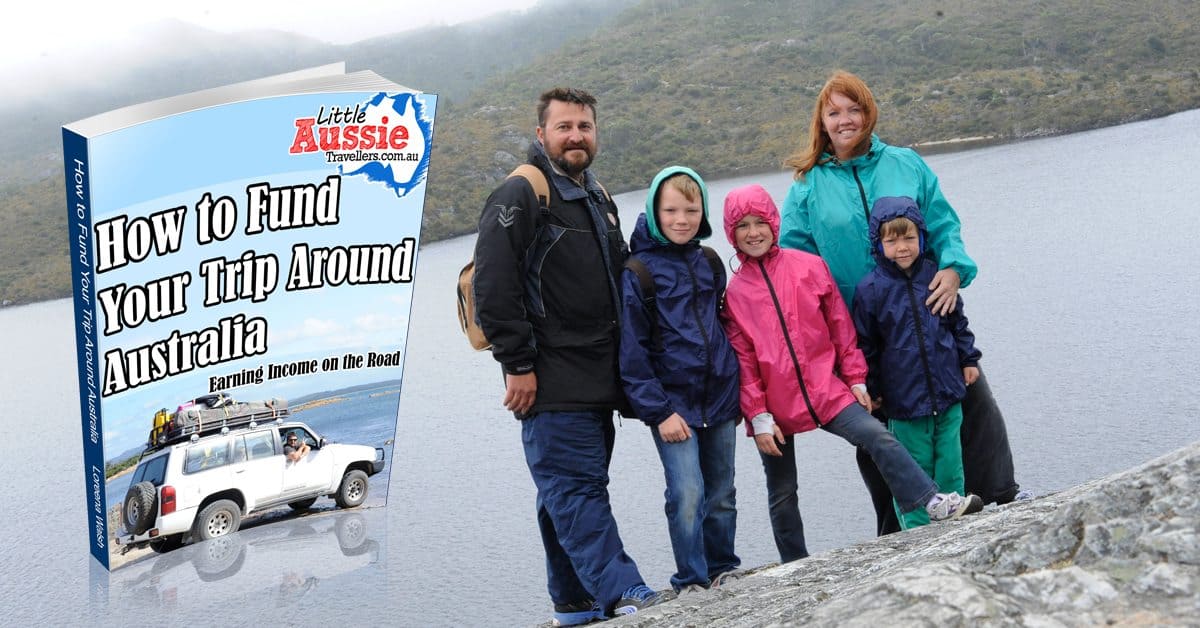
by Loreena Walsh | Featured Posts, Trip Planning
Self sufficiency when travelling Australia is made possible through having the capability to carry plenty of drinking water, having enough fridge space to carry and keep perishables, having enough battery power to recharge devices, run lights and fridges, and generally having enough solar power, or a generator to keep the batteries healthy and topped up.
Being self-sufficient and having the ability to stay in free camping or budget camping areas will save you more money than anything else on your trip. If you are relying on caravan parks for the entire trip, then it is possible to pay more in site fees per week than you would to rent a 3 bedroom home, especially when there are some caravan parks charging over $80 per night for a family to stay on a powered site. Even the average cost of around $45 per night for a family camp site can eat into any income or savings fast.
That is not to say that caravan parks are not to be enjoyed, there are some amazing parks out there that provide a great space for travellers and families. For some people, staying in a caravan park is ideal for them, and the way they prefer to travel, and there is no right or wrong way to plan your lap around Australia, it’s just reality that to stay in caravan parks every night is going to cost you a lot more than to choose free camping options where possible.
Most families tend to do a mix of both, especially in the areas where free camping isn’t an option. While setting up with these extras may feel like an expense you don’t need when trying to save for your trip, the price of preparing for free camping before you leave is much less than the extra expense of long term caravan stays.
In order to make the most of free camping where possible we have:
- Porta-potti & pop up shower tent.
- 2 x 100Ah Batteries in the caravan
- 200w solar panels for the caravan
- 40w solar panel for the car
- 1 x Deep cycle in the car plus our main starter battery
- 60 litre water tank in the car
- 82 litre water tank in the caravan + spare 20l drum.
- 60 litre Fridge in the car.
- 90 litre Fridge in the caravan
- 800w generator
By making the choice to include all of the above in our travel set-up, we have allowed ourselves the flexibility to camp for extended periods without relying on powered campsites or caravan parks. A couple of thousand dollars in set-up expense will be quickly repaid in saved campsite fees; trust us!
This post is an excerpt from our book “How to fund your trip around Australia” if you’d like to know more about making the most of life and hitting the road, head over to our store and grab your copy now.
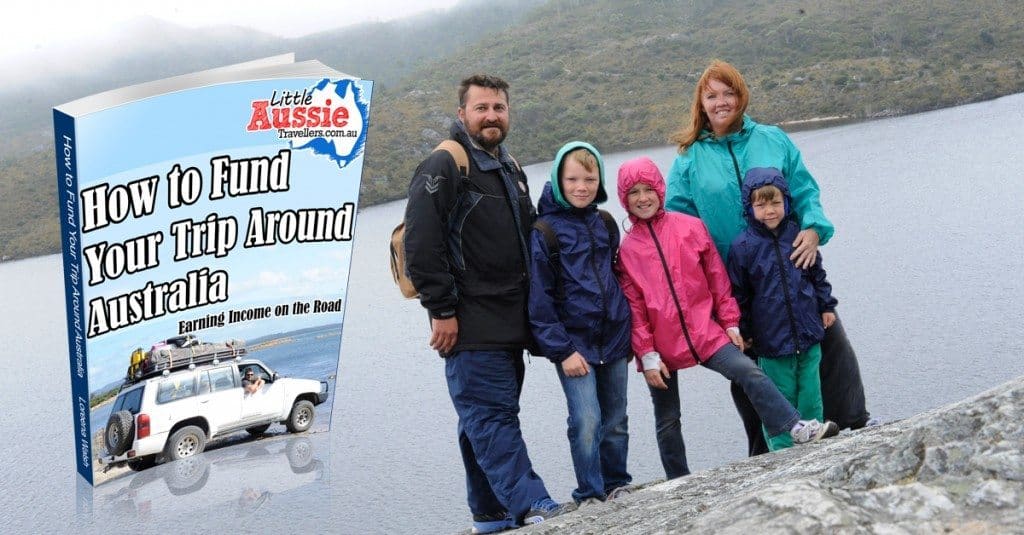
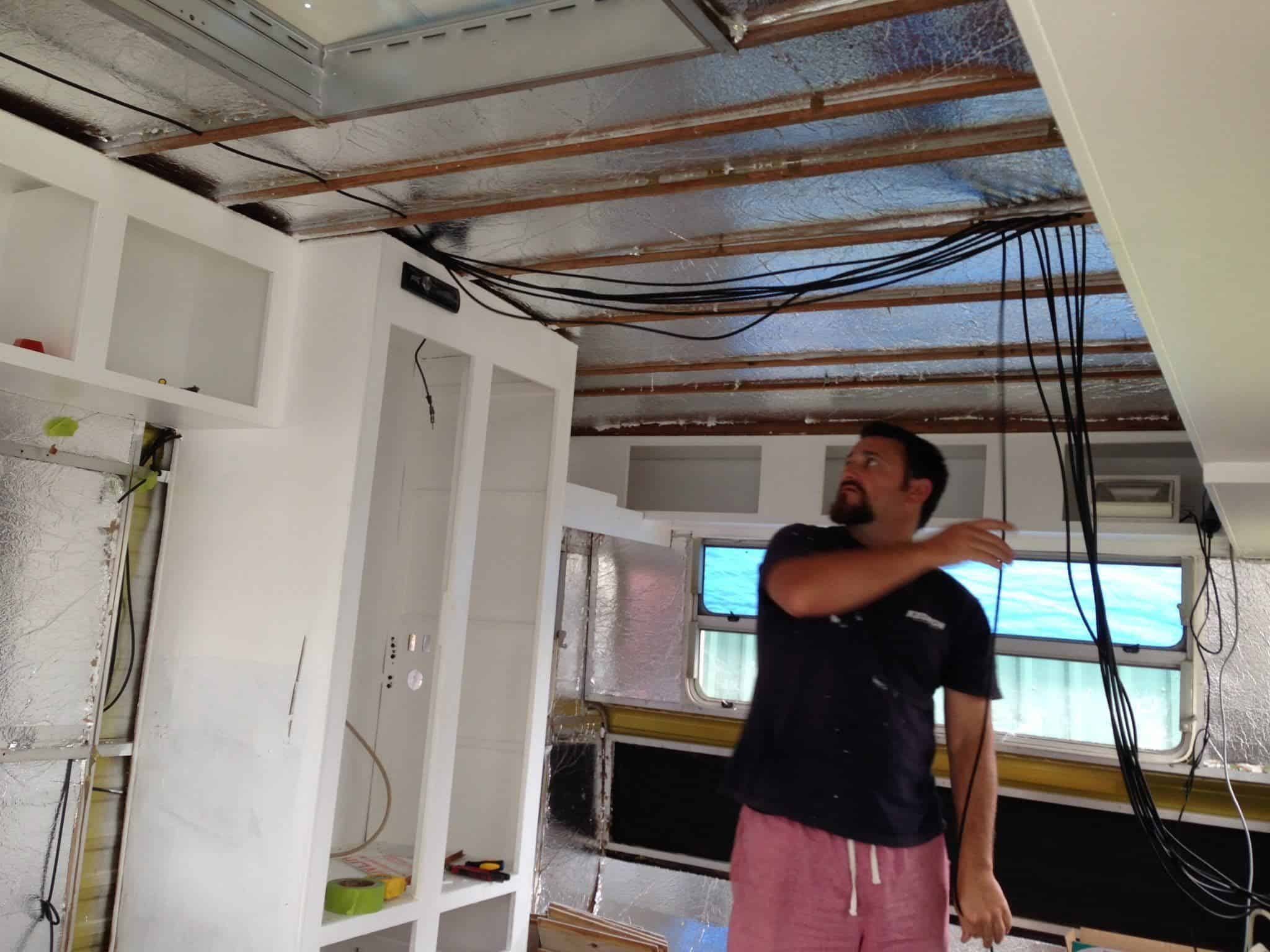
by Loreena Walsh | Caravan Renovation, Featured Posts
Well, I just downloaded all the photos we’ve taken of the caravan renovation during our reno adventure. If you’ve been following along on Facebook, then you’ve likely been seeing updates pop up as we go, but simply because of the busy nature of trying to get the renovation done, I haven’t updated anything on the blog.
While the plan is, to post a chronological step through of what we’ve done; the irony is that until we’re done I just won’t have the time, so I’m posting a few pictures that highlight the process we’ve been through and are getting closer to finishing.
This is the original lounge, I need to find some more of the internals before we started stripping, then in the one below you can see Matt stripping out the internal wall lining, after he’d ripped out the kitchen and the lounge and old beds.
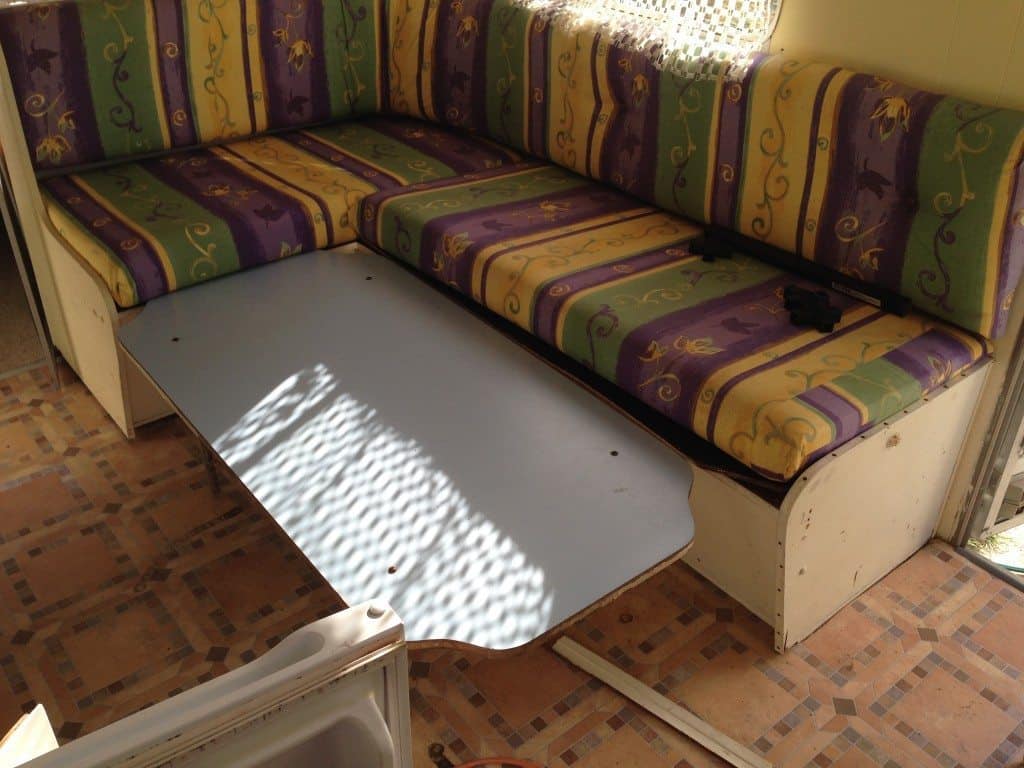
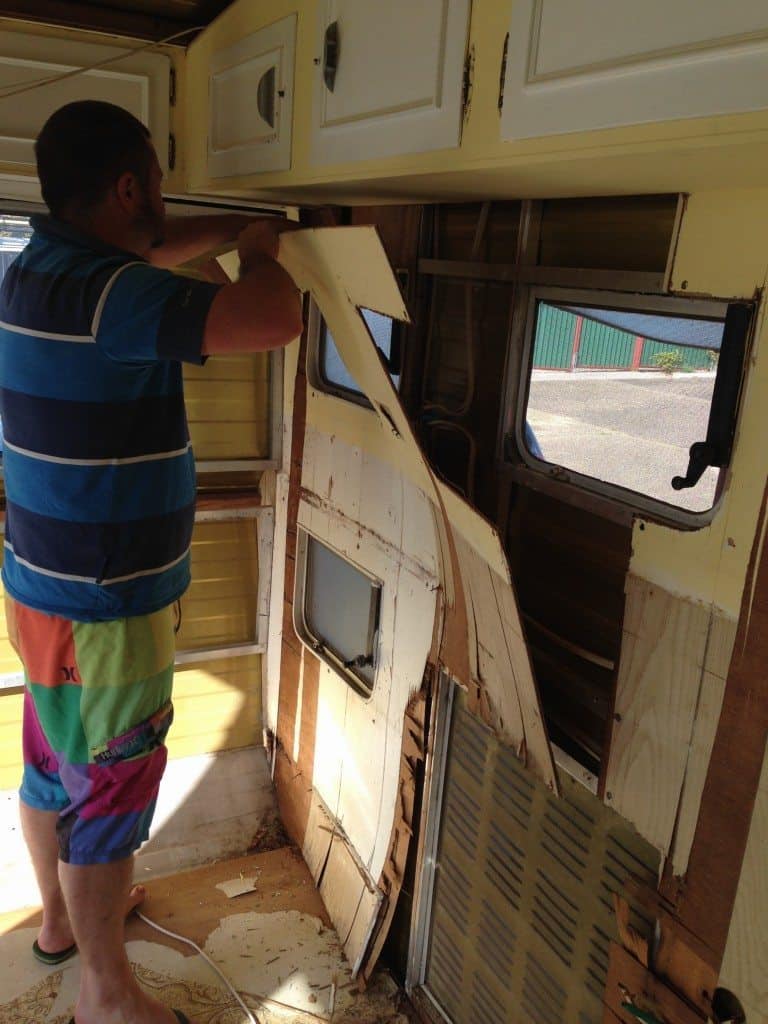
There is so much work in stripping out just in order to put it all back together again, but we got it all stripped out, took out all the old wiring, part of the floor, and had a clean canvas to begin rebuilding.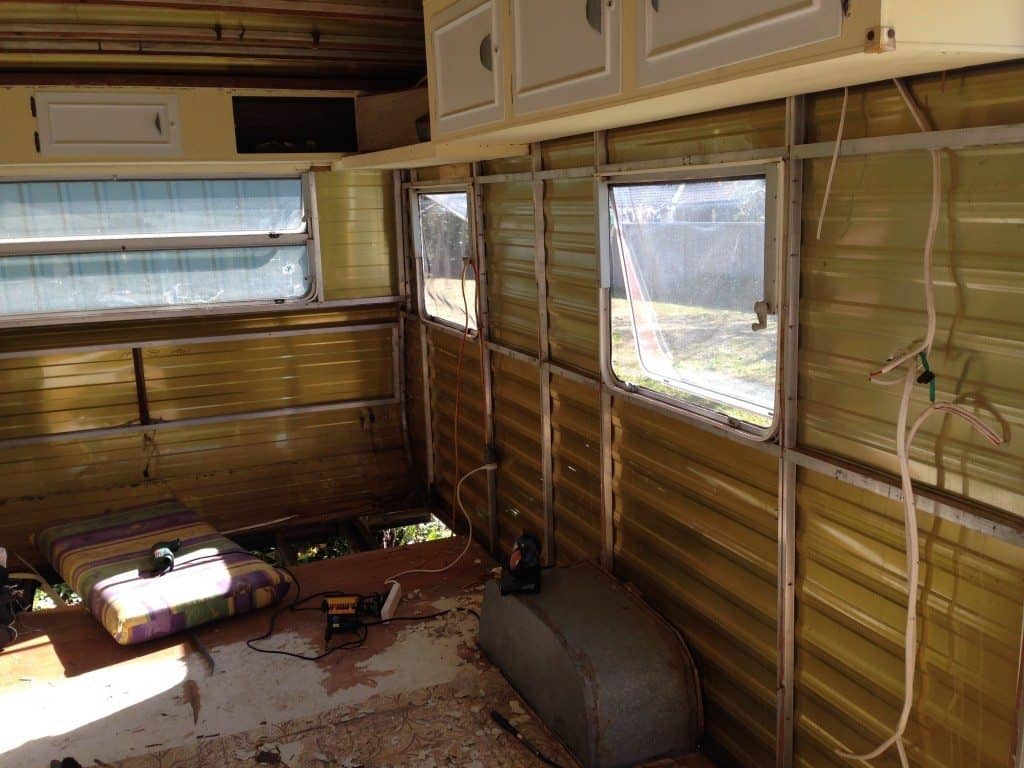
Then there was re-wiring the entire van and deciding where we wanted our phone charging points, lights, stereo and other goodies to go. There is a LOT of wiring running in the van. We got heavy duty dual core so it should last forever and a day. You can see in the photo below, we’ve repained, and insulated as well by this point.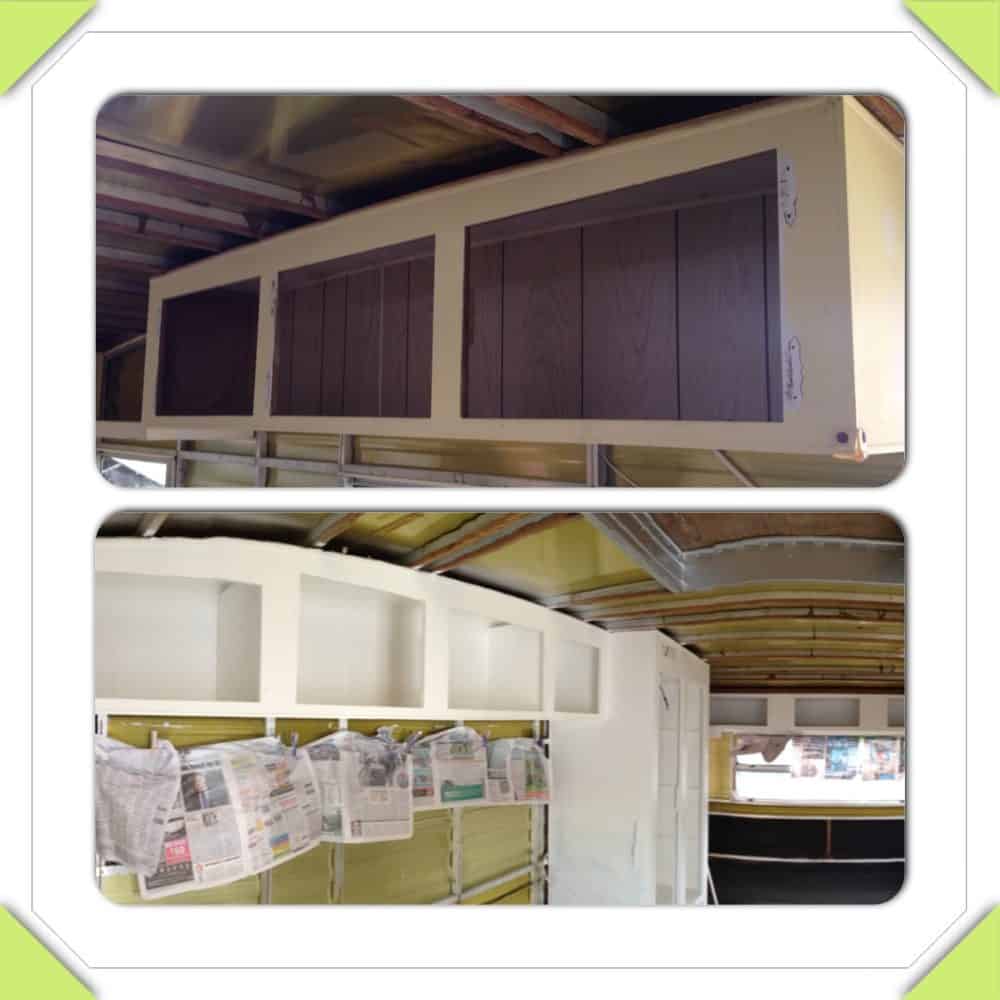

Once many, many hours of work went in, we started to re-line the van.
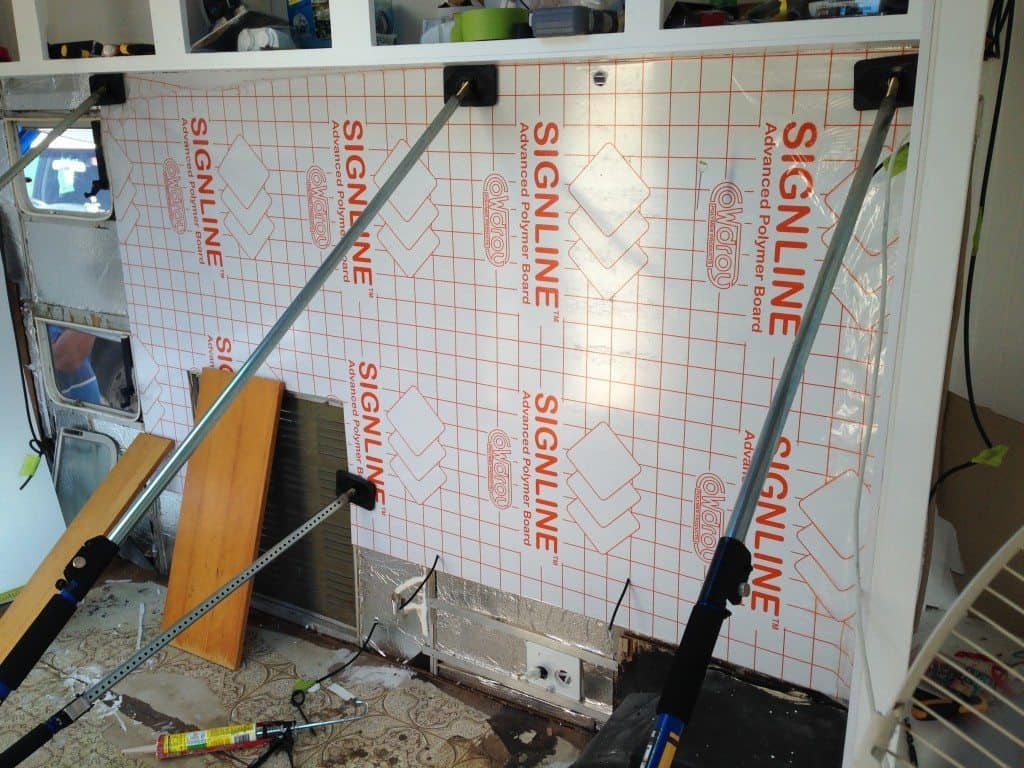
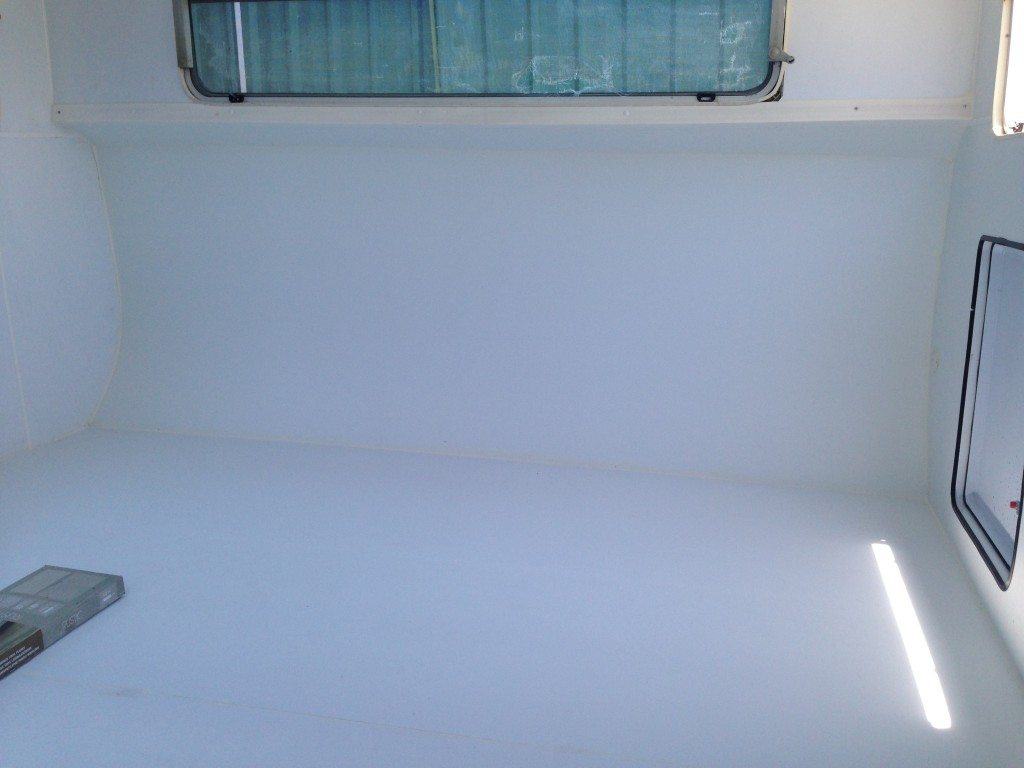
After many, many more hours, we began to get to some of the detail work, we laid a new floor which I love. It feels and looks like old floorboards.
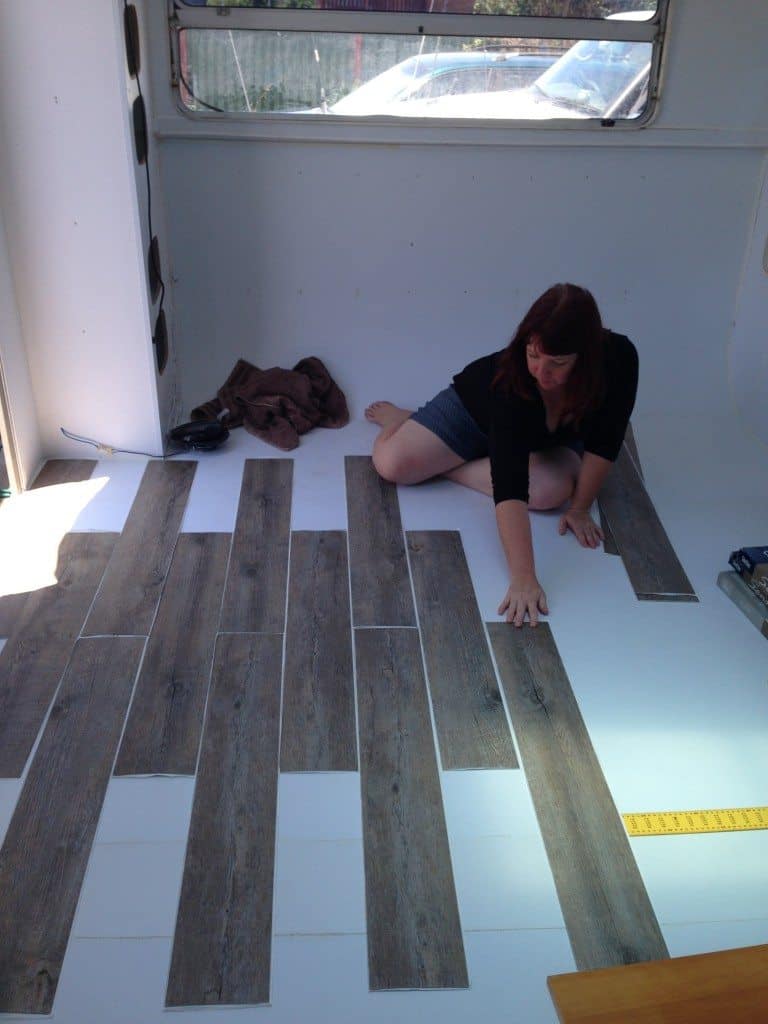
It also included painting… the kids helped to do the undercoat, and then once all that was over we could begin constructing the furniture.
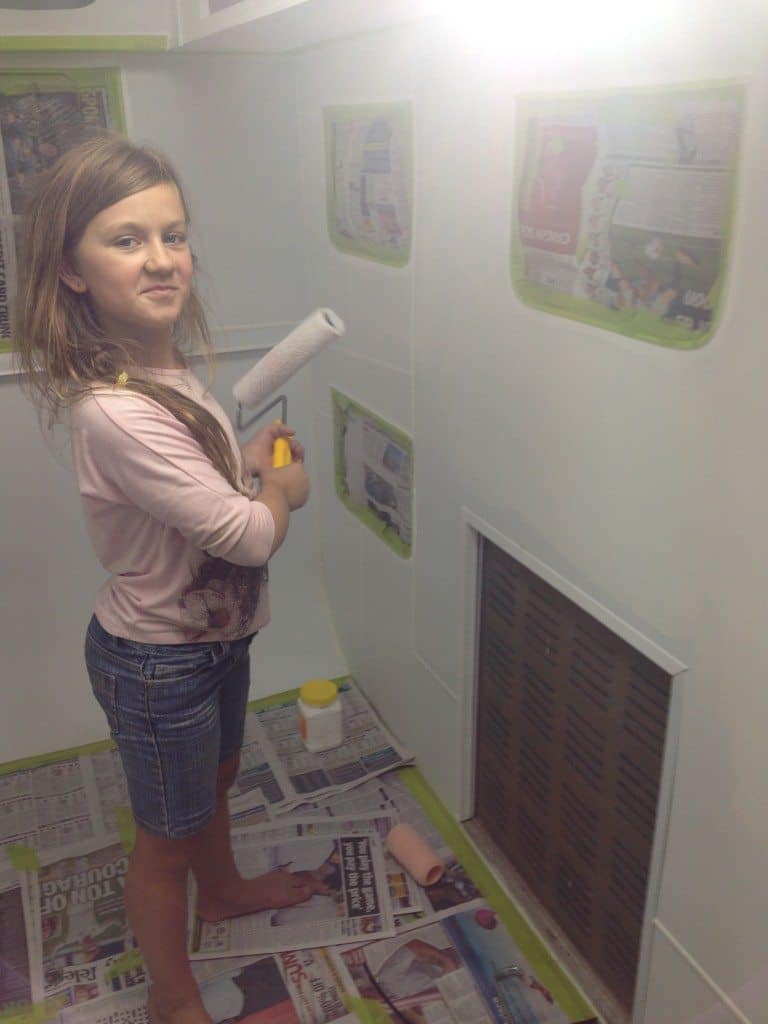
This is the new lounge in progress, it doesn’t have the dividing wall up in this picture, but you’ll see that in the next one down. It’s a big taller than the old one but we wanted storage space, and you just have to figure these things out as you go.
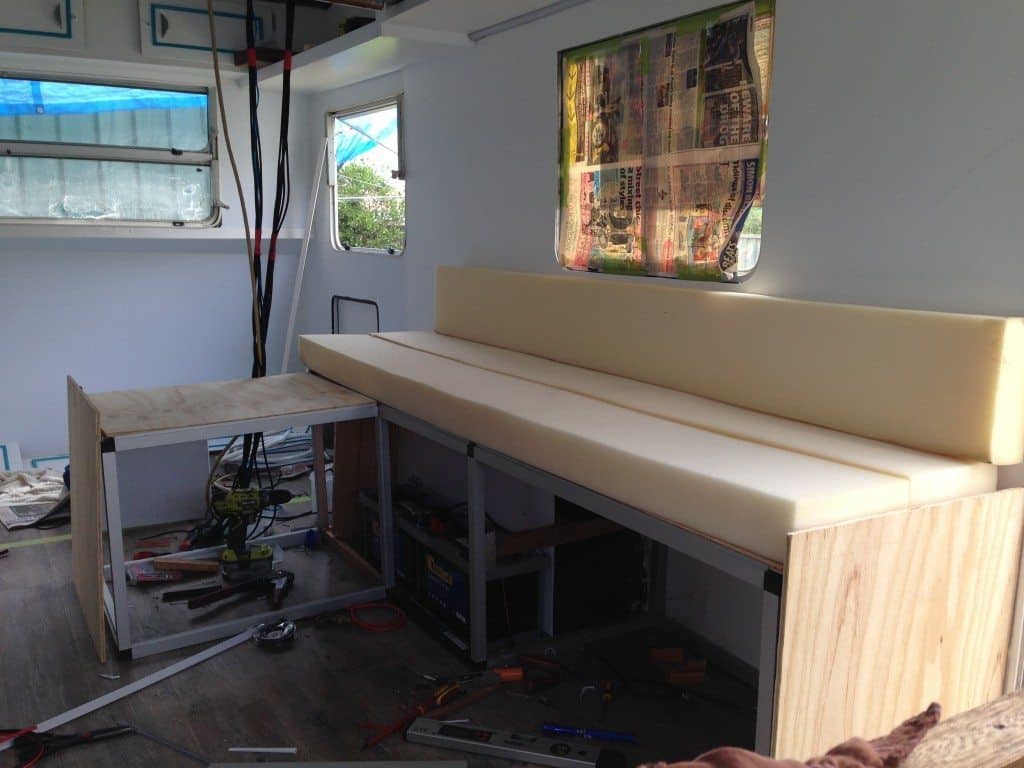
So, at the moment, we have the entire van lined, wired, painted and the bunks and lounge, and new dividing wall between the lounge and our bedroom installed. We have the kitchen and our bed to go.
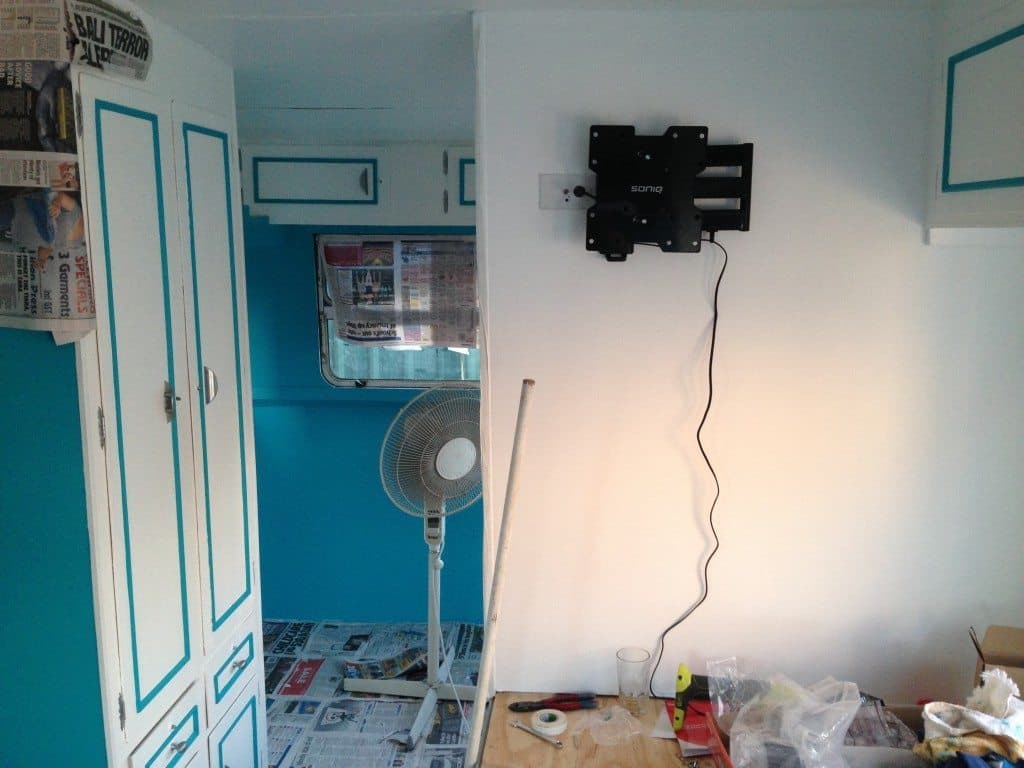
The triple bunks are mostly finished, just some cosmetic work to do, the kids love them and I can’t blame them! It will be lovely for them to have their own space. We utilised the old cupboard to turn it into pigeon holes for them to store toys and goodies. We then created new pigeon holes at the entrance of the door to house the fire extinguisher and blanket, a speaker and charging point. It will be handy to store things like sunscreen, hats and things we need handy daily.
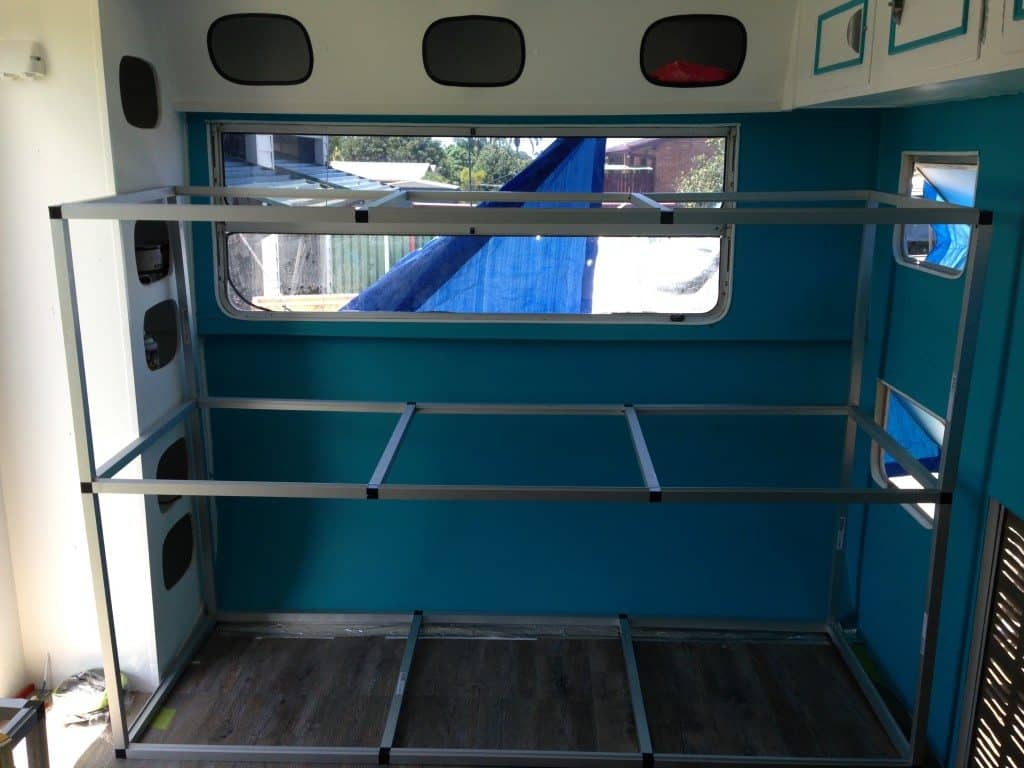
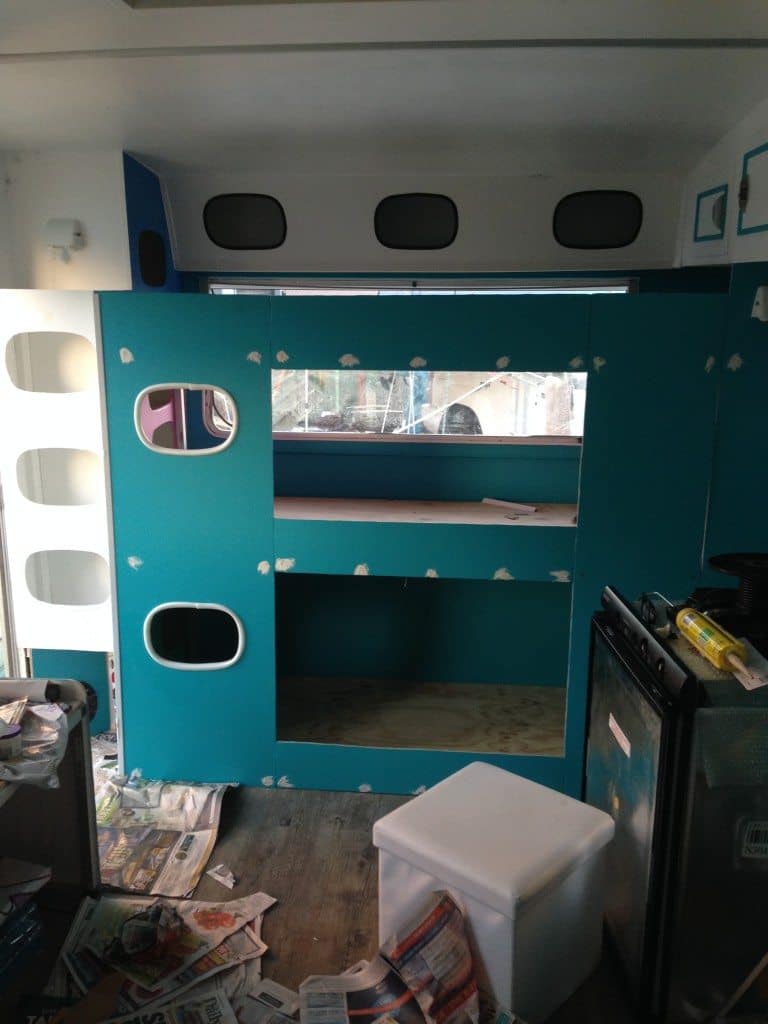
There’s so much we’ve done that hasn’t made it in here, including putting new springs and axle underneath, installing solar wiring and a new aerial, scraping the entire outside edging to be re-sealed, but I’ll do individual posts for those processes once we’re kicking back and enjoying what we’ve created.
This has been one of the most challenging but rewarding journeys of our lives I think, and it isn’t over just yet.
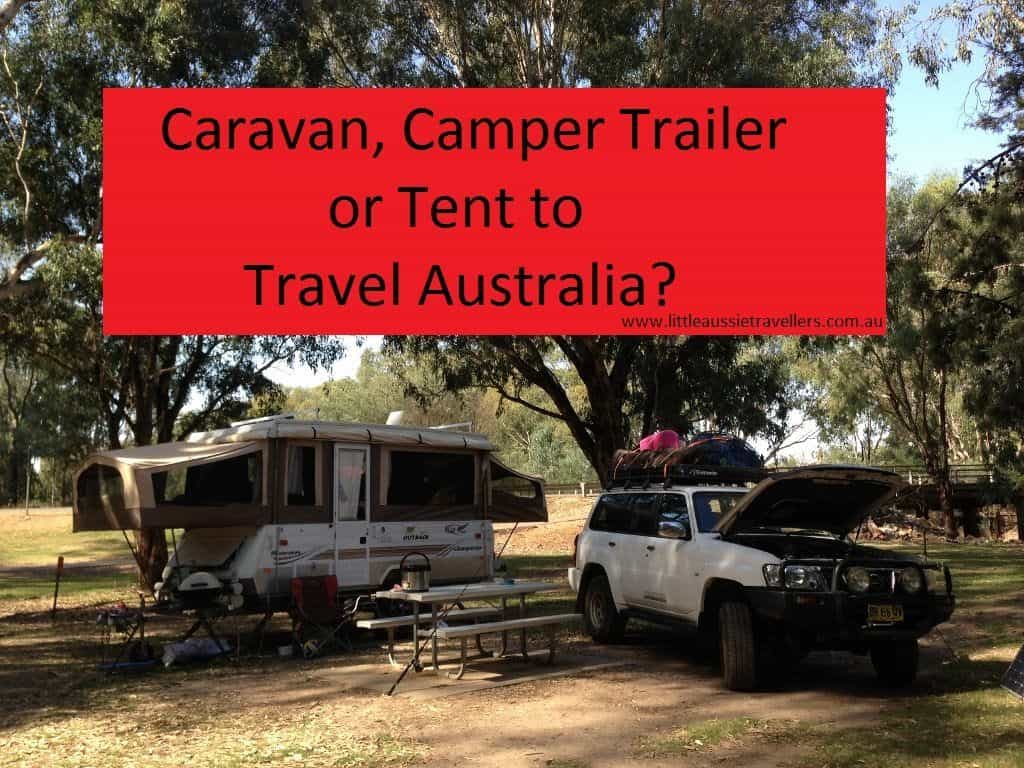
by Loreena Walsh | Trip Planning
What should you live in while you’re travelling Australia as a family?
We’ve travelled at different times in a tent, camper and caravan, and so we’ll give our thoughts on all of them. What will be best for your family? The answer to this question is one that’s almost impossible to refine, there are so many variables, and so many differences from one family to the other. If you’re new to caravanning and camping, the decision can be even tougher because you don’t quite know what you’ll like and what you’ll dislike about the options available to you, so hopefully we can make the decision a little easier for you.
My best piece of advice is that; nothing you travel in will fit every need you have. All choices have their own pros and cons, and it really comes down to what features and benefits are most important to you. Take time to look at what’s out in the market, and don’t purchase the first thing you see unless it fits your requirements perfectly and is a good price. We searched lots of online market places as well as local papers when buying, but Gumtree was where we ended up finding our caravan and our Jayco Swan, so that’s a great place to start your caravan shopping.

Pros and Cons of Camper Trailers to Travel Australia
Camper trailers are a popular choice for families, and there’s plenty of people who hit the road to explore the country while living in a camper. There are different types of campers available to consider, and each will have it’s own benefits:
[row]
[column size=’1/3′]Soft Floor Camper Trailers
The biggest benefit of soft floor campers is that they are generally the most economic choice of camper trailer. They range from a few thousand dollars right up into luxurious campers priced $50,000 or more. For families, they are often a good step up from a tent, and allow parents to have a ready made bed, with some styles like the Trak Shak folding sideways to include 2 double sized beds. There’s usually plenty of storage underneath inside the trailer, usually stored in plastic tubs or sliding drawer systems. [/column]
[column size=’1/3′]Hard Floor Camper Trailers
Hard floor camper trailers provide the benefit of being up off the ground with the ease of a soft floor camper. Cub Campers are a great example of hard floor camper trailers. They are generally a little bit more expensive than soft floors, but have a few extra options and possibilities.Some can include inbuilt cupboards, and we’ve even seen them with a bunk setup inside. Many hard floor camper trailers are forward flipping, and do give the benefit of the fold down floor being up off the ground a bit. [/column]
[column size=’1/3′]Hybrid Campers
We originally chose to travel in a hybrid style camper, a Jayco Swan. The biggest benefit of this style of camper is the caravan feel on the inside, the kitchen being all set up inside, with cupboard space, and the fact that you’re camped high off the ground. This option is generally more expensive, with fewer brand options available. Another benefit is being able to camp in areas where tents and camper trailers are not allowed. Options such as air conditioning can also be added to hybrid campers, as well as hot water services, and a variety of bed setups.
[/column][/row]
Pro for Camper Trailers: Cheaper option, generally more suitable for off-road travel, lighter to tow, easier to tow.
Cons for camper trailers: Pack up and pack down time can be a hassle, Canvas can be restrictive especially in wet weather, generally an outdoor kitchen for soft/hard floor campers (although hybrids have a kitchen inside), storage can be a hassle without cupboards.
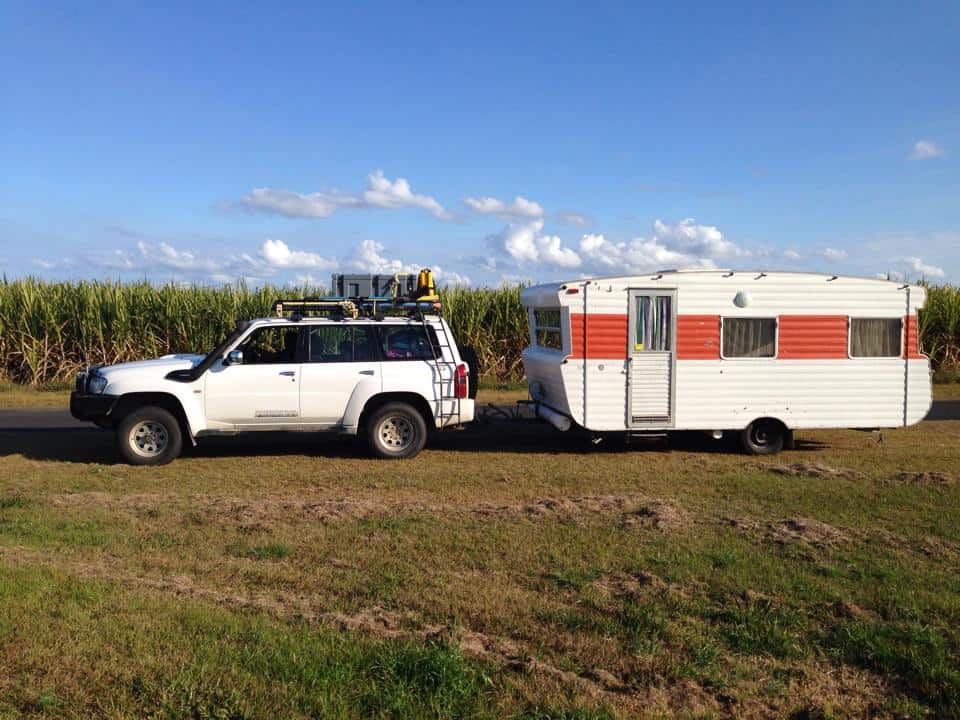
Pros and Cons of Caravans to Travel Australia
Caravans are probably the most common choice for people wanting to travel Australia, of any age. But, where choosing a caravan might seem like a straight forward task, there are so many variables and options available that it can be really overwhelming. A walk around any caravan and camping show will open up a world of luxury, on-road and off-road models, and gadgets galore, so here’s our tips for caravan travel and shopping for your perfect caravan.
[row]
[column size=’1/2′]New vs Second Hand
Budget is a huge consideration for any family wanting to travel. There can be mixed opinions on buying new vs second hand when it comes to caravans. Purchasing a new caravan means you’ll be covered by warranty, where purchasing a second hand van means you’ll save money off the new price that you can use elsewhere. The time of year you purchase a second hand van can affect the amount you pay, as well as the type of van you’re aiming for; bunk vans for example tend to sell quickly and for more than other layouts. If you’re looking to purchase a new caravan, then “Caravan and Camping” shows can offer a good opportunity to get a great deal and have bonuses thrown in.[/column]
[column size=’1/2′]On-road vs Off-road Caravans
There is a school of thought that says an off-road van is essential to travel the country, and it’s one of the reasons we originally chose to buy a hybrid, because we couldn’t afford a full size off-road van. Off-road vans generally sit higher than on-road versions and may come with extras that toughen them up. The way I see it, is that while off-road vans can be handy when heading along dirt roads, corrugations and more remote areas, most of where you’ll want to go is going to be accessible with an on-road van. Also, if you’re paying $60,000 and more for an off-road van are you really going to drag it anywhere it can sustain damage? There are definitely benefits, but we carry a tent with us for really remote camping, and if we had to choose between an on-road van or not going at all because funding an off-road van was impossible, then give me an on-road van any day. [/column]
[/row]
Pros for Caravans to travel Australia: Ease and speed, safety and comfort, are some of the biggest pros to travelling Australia with a caravan. Caravans are as easy as pulling up into your campsite and opening the door to step inside. This is a big bonus for saving time on holidays, overnight stops are quick and easy, and moving from one site to another is easier too compared to tents or campers. Safety is increased in a caravan, purely because of the increased ability to lock the doors and windows. While some vans such as expandas and rapids do have beds with canvas, a majority of vans have solid walls making break and entering more difficult. Comfort may just be the biggest plus for caravan travel.
Cons for Caravan travel in Australia: The size and weight of caravans can be prohibitive to some travel, especially in tight spaces, busy areas and driving in windy or hilly conditions. The size of your caravan will also be determined by the tow capacity of your vehicle and the bigger the van, the bigger your fuel bill will likely be. Yearly registration fees can be more expensive for caravans as can insurance premiums.
Travelling Australia in a Tent.
Of course, not many families are likely to head off full time travelling with only a tent as their accommodation, but never fear, there are families out there doing just that! Our first ever expedition on a long distance trip was in a tent from Darwin to Kakadu and then down the centre to Adelaide in a hire car and a tent to sleep in and it was one of the best experiences of our lives and set us on the path to full time travel. If you are passionate about getting out to see the country and your only option financially is to do it in a tent, then why not! Of course it isn’t as luxurious as a van or even a camper, but there have been many moments we’ve been so sick of towing that we’ve joked about going back to only having a tent, and if we hadn’t decided to travel for such a long, open-ended trip then we may have done just that!

Final Thoughts.
Whatever it is you choose to travel in, do plenty of research, ask lots of people and talk to them about things they like and dislike about their set-up and know that nothing will ever be completely perfect, there is always compromise, and that’s ok, it’s all part of the experience and the journey. You can read more about our decision to change from the swan to our classic 70’s caravan here, and if you have any questions then just pop them in the comments below.

 After we’d been on the road for around six months, Matt’s dad called, as he needed some respite. Matt’s grandmother developed severe dementia, it progressed quite rapidly, and so, instead of continuing on our way, we needed to stay put and help care for her.
After we’d been on the road for around six months, Matt’s dad called, as he needed some respite. Matt’s grandmother developed severe dementia, it progressed quite rapidly, and so, instead of continuing on our way, we needed to stay put and help care for her.
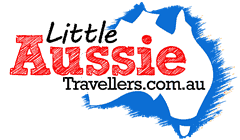




 As part of our best-selling ebook “
As part of our best-selling ebook “
























